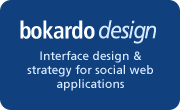You’ve probably heard the term “stream” in relation to attention, as in “attention stream”.
The usage of the word is spreading, however, and is now finding its way into web application vernacular. It is called a “lifestream”, “socialstream”, “friendstream”, “contentstream”, among others.
It has come to mean a list of the always-updated items in a system. Here are a few examples:
- Twitter
The stream in Twitter is the list of latest sms messages from your friends
- Facebook News Feed
This stream has lots of different types of items, made up of activities like adding friends, joining groups, and adding applications
- RSS readers
Your RSS reader displays a stream of the latest posts from the blogs you subscribe to
- Del.icio.us Links
Your list of links submitted to Del.icio.us is a linkstream
- Digg Spy
The latest items added or dugg in digg
It should be apparent that almost any items updated in real-time can constitute a stream. And therefore a stream can be used in almost any application that people use. The question is: is it useful to see a list of what you’ve done or what you’re friends are doing? In many cases, it is at least interesting, if not useful.
Continue Reading: Welcome to the Stream
